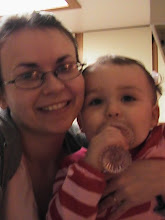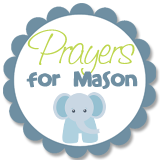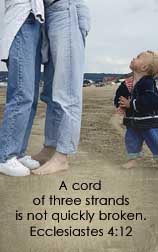This week's theme is to basically pick the one photo that you loved the most this week. This week I've posted lots of photos my daughter from the day she turned 18 months. You can scroll down to look at them. I have loved them all. :) There are even more. I'll share them later this coming week. I'm going to go visit my sister Jen in Southern Oregon over the weekend. She has been much more sensitive to my brother's passing and often has hard times dealing with it, that plus she has been having issues with her boss who is heartless when it comes to her depression... he thinks she should've gotten over it by now...... GRRRRR.... But enough about that. If anyone asks, that's where I shall be for the next few days. I will be back on Monday! May you all have a great weekend! I'll check my blog before I leave tomorrow afternoon.
Love, Sarah
This is among my favorite photos of my daughter this week. I love this smile! :)
CLICK TO ENLARGE.
To see more FFF posts, see the main list at Kiss the Frog 4 Me.
Thursday, May 22, 2008
Favorite Foto Friday
 Posted by
Milk Mama
at
10:47 PM
9
comments
Posted by
Milk Mama
at
10:47 PM
9
comments
From the News: Breastmilk Contains Stem Cells

http://www.sciencealert.com.au/news/20081102-16879.html
The Perth scientist who made the world-first discovery that human breast milk contains stem cells is confident that within five years scientists will be harvesting them to research treatment for conditions as far-reaching as spinal injuries, diabetes and Parkinson’s disease.
But what Dr Mark Cregan is excited about right now is the promise that his discovery could be the start of many more exciting revelations about the potency of breast milk.
He believes that it not only meets all the nutritional needs of a growing infant but contains key markers that guide his or her development into adulthood.
“We already know how breast milk provides for the baby’s nutritional needs, but we are only just beginning to understand that it probably performs many other functions,” says Dr Cregan, a molecular biologist at The University of Western Australia.
He says that, in essence, a new mother’s mammary glands take over from the placenta to provide the development guidance to ensure a baby’s genetic destiny is fulfilled.
“It is setting the baby up for the perfect development,” he says. “We already know that babies who are breast fed have an IQ advantage and that there’s a raft of other health benefits. Researchers also believe that the protective effects of being breast fed continue well into adult life.
“The point is that many mothers see milks as identical – formula milk and breast milk look the same so they must be the same. But we know now that they are quite different and a lot of the effects of breast milk versus formula don’t become apparent for decades. Formula companies have focussed on matching breast milk’s nutritional qualities but formula can never provide the developmental guidance.”
It was Dr Cregan’s interest in infant health that led him to investigate the complex cellular components of human milk. “I was looking at this vast complexity of cells and I thought, ‘No one knows anything about them’.”
His hunch was that if breast milk contains all these cells, surely it has their precursors, too?
His team cultured cells from human breast milk and found a population that tested positive for the stem cell marker, nestin. Further analysis showed that a side population of the stem cells were of multiple lineages with the potential to differentiate into multiple cell types. This means the cells could potentially be “reprogrammed” to form many types of human tissue.
He presented his research at the end of January to 200 of the world’s leading experts in the field at the International Conference of the Society for Research on Human Milk and Lactation in Perth.
“We have shown these cells have all the physical characteristics of stem cells. What we will do next is to see if they behave like stem cells,” he says.
If so, they promise to provide researchers with an entirely ethical means of harvesting stem cells for research without the debate that has dogged the harvesting of cells from embryos.
Further research on immune cells, which have also been found in breast milk and have already been shown to survive the baby’s digestive process, could provide a pathway to developing targets to beat certain viruses or bacteria.
 Posted by
Milk Mama
at
6:47 PM
2
comments
Posted by
Milk Mama
at
6:47 PM
2
comments









